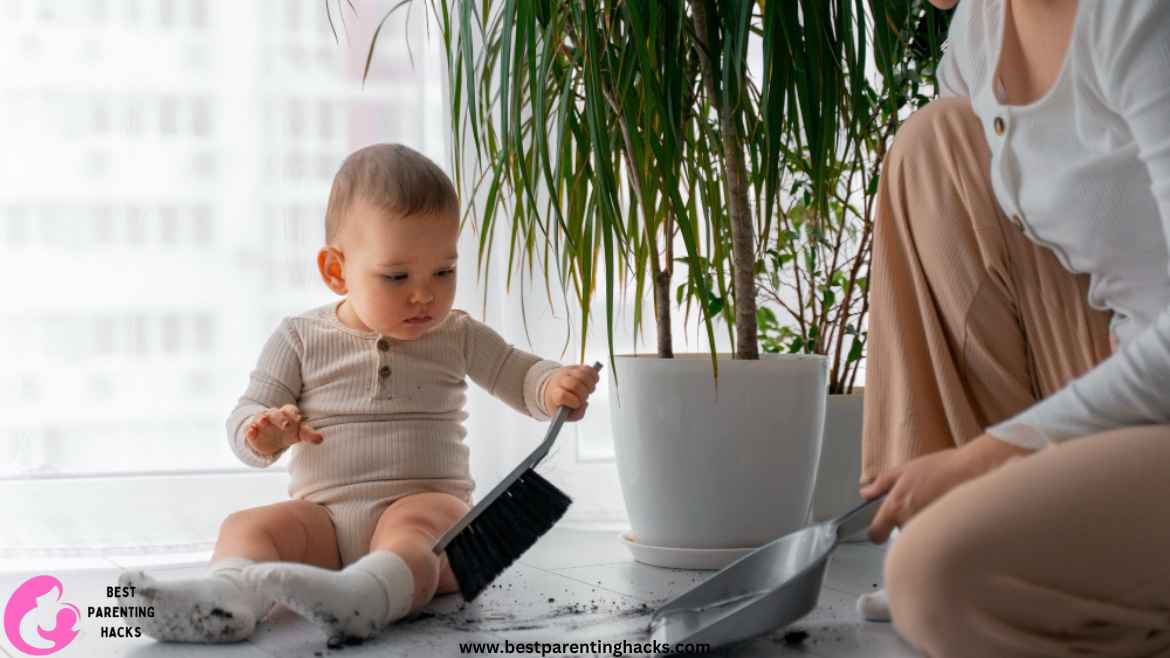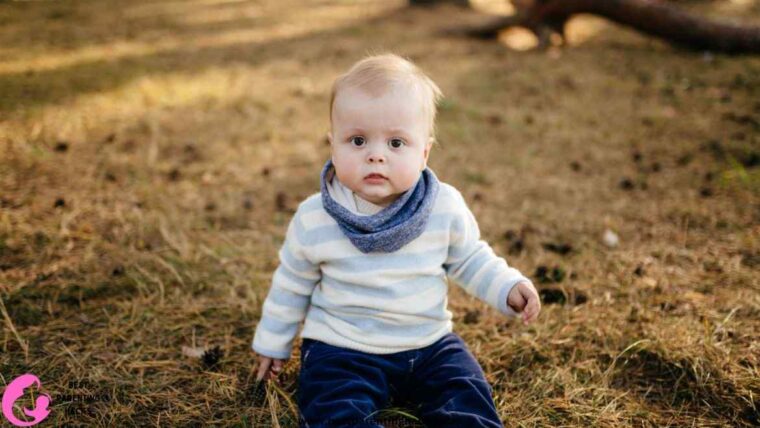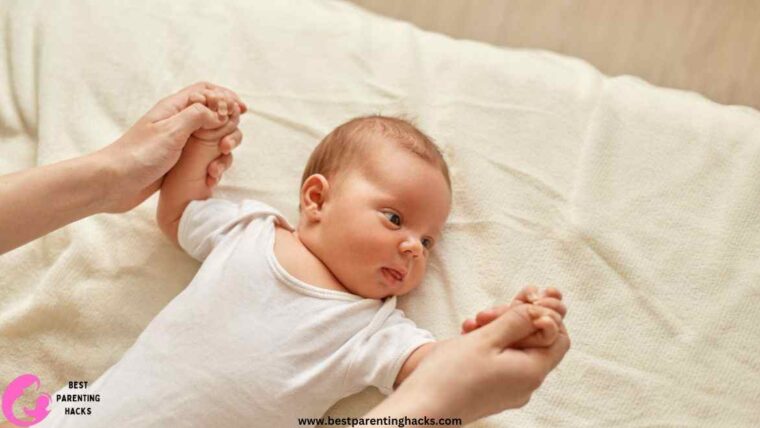Table of Contents
One of the most terrifying things I’ve ever done as a parent was to discover my child eating potting dirt. My little explorer decided to taste-test the contents of our indoor plant pot during one of those fleeting moments of distraction. I’m not the only parent who has experienced anything similar. Toddlers frequently taste things they shouldn’t because of their innate curiosity and desire to explore the world. Although it’s a normal aspect of their growth, as parents it may be very concerning.
In these kinds of situations, the first thing each parent thinks of is, “What should I do now?” The solution, while not always clear-cut, usually entails three primary actions: determining the quantity consumed, clearing the child’s mouth of any leftover soil, and attentively observing for any negative reactions. Above all, it is critical to retain your cool. Potting soil may often be consumed in moderation without causing harm, but parents need to know what goes into it and what the hazards are.
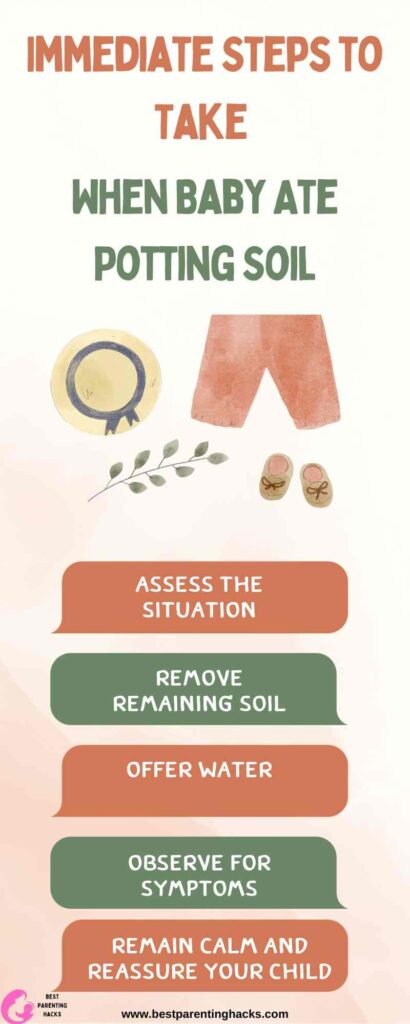
Immediate Steps to Take When Baby Ate Potting Soil
You need to act quickly if you discover your youngster eating potting soil. Here are five things to think about:
1. Assess the Situation: Find out as soon as possible how much dirt your youngster has consumed. A mouthful is more alarming than a tiny lick or taste.
2. Remove Remaining Soil: Give your child’s mouth a gentle cleaning. To stop them from consuming more soil, wipe any that may have gotten on their hands and face with a gentle, moist cloth.
3. Offer Water: Give your youngster a glass of water to sip. This can lessen the chance of them choking on dirt particles and assist in removing any leftover soil from their lips.
4. Observe for Symptoms: Keep an eye out for any indications of pain or distress, such as coughing or choking. Also, make sure to take note of any reactions that could lead to swelling or rashes.
5. Remain Calm and Reassure Your child: It’s critical to maintain composure since your actions might affect how your youngster reacts to the circumstance. Assure them that everything will be well and explain the dangers of consuming soil.
You Might Also Like to Read: Baby’s Breath Smells Like Yogurt. What’s the Reason?
Understanding Potting Soil and Its Components
A commonplace in many homes, potting soil is trickier to use than it seems. It consists of substances each serving a purpose, in supporting the growth of plants. The main ingredients are often organic matter, such as composted bark, which offers nutrients; perlite or vermiculite, which is provided for aeration; and peat moss, which aids in water retention. While these substances are useful to plants, they may pose hazards to children if they consume them.
1. Organic Matter: This contains nutrient-rich, degraded plant matter. However, if consumed it could potentially contain fungi and bacteria that may lead to issues.
2. Perlite and Vermiculite: These are elements made of minerals that are used to increase the aeration and moisture retention of soil. Although they are usually safe, if consumed in excessive amounts, they may result in intestinal obstruction or choking.
3. Fertilizers and pesticides: Additional fertilizers and insecticides are sometimes added to potting soils. Even though they are generally harmless in tiny doses, consuming excessive amounts can make them poisonous.
4. Sand and Small Rocks: Frequently added for drainage, these might be dangerous and should be taken into consideration if they are discovered in the dirt your kid has consumed.
Comprehending these constituents facilitates the evaluation of plausible hazards and the determination of the suitable methodology.
You Might Also Like to Read: I Accidentally Gave Baby Tap Water. What Should I Do Now?
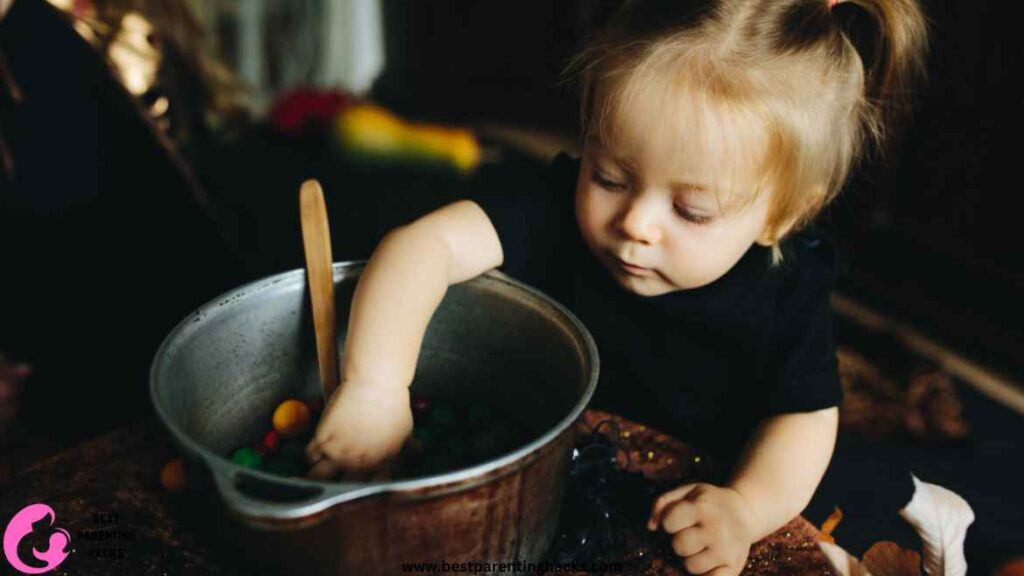
When to Seek Medical Attention
Even while the majority of dirt ingestion instances are not dangerous, sometimes medical intervention is required.
Initial Assessment: It is recommended to speak with a healthcare provider if your kid has eaten a large amount of dirt, particularly if it includes pesticides or fertilizers.
1. Persistent Vomiting or Diarrhea: These signs may point to an infection or gastrointestinal discomfort.
2. Difficulty Breathing: Get medical help right away if your youngster exhibits symptoms of respiratory distress.
3. Altered Behavior: After intake, lethargy, agitation, or any other strange behavior might indicate a more serious problem.
4. Signs of Choking or Intestinal Blockage: Your kid may require emergency medical attention if they are having trouble swallowing or if they exhibit any pain.
5. Unknown Soil Composition: It’s safer to get a professional opinion if you’re unaware of the ingredients in the soil you’ve consumed.
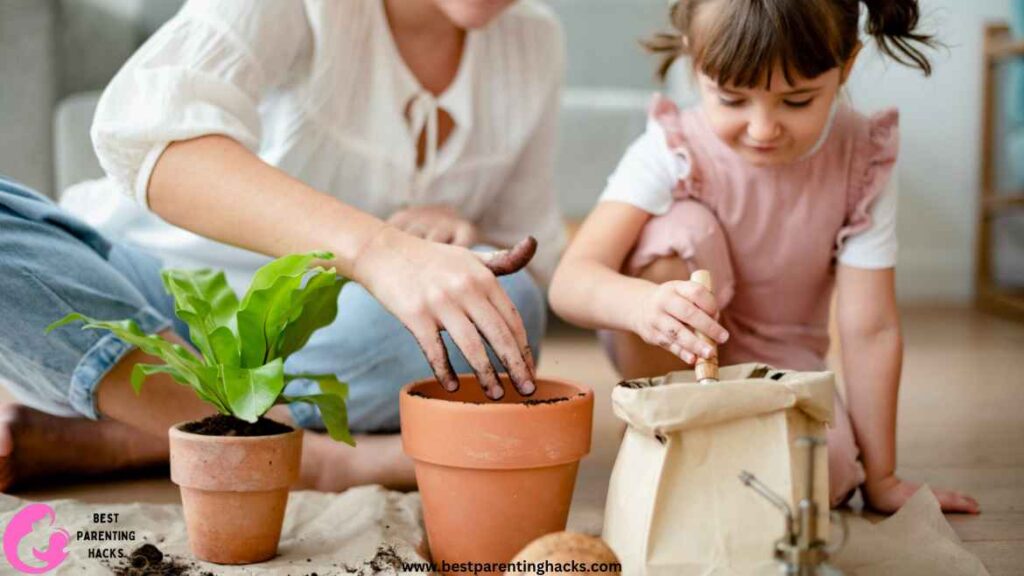
Preventive Measures and Safe Play
To ensure the safety of your child it is important to take steps to avoid situations.
1. Secure Plant Pots and Garden Areas: When your child is in the garden, keep potted plants out of reach and keep a constant eye on them.
2. Educate Your Child: As they become older, tell them the difference between safe and harmful drugs. Justify the avoidance of eating dirt and other non-food objects.
3. Create a Safe Play Environment: Make sure there are no tiny or potentially harmful items in your child’s play space.
4. Regular Supervision: Always watch out for your kids, particularly in unfamiliar or outside settings.
The Curiosity of Toddlers: Understanding Their Behavior
Due to their innate curiosity, toddlers’ actions contribute to their learning. They utilize all their senses to explore their surroundings even engaging their sense of taste. While this exploration is essential for their development, it does expose them to danger. Parents who are aware of this stage may better balance their child’s drive for exploration with their need for safety.
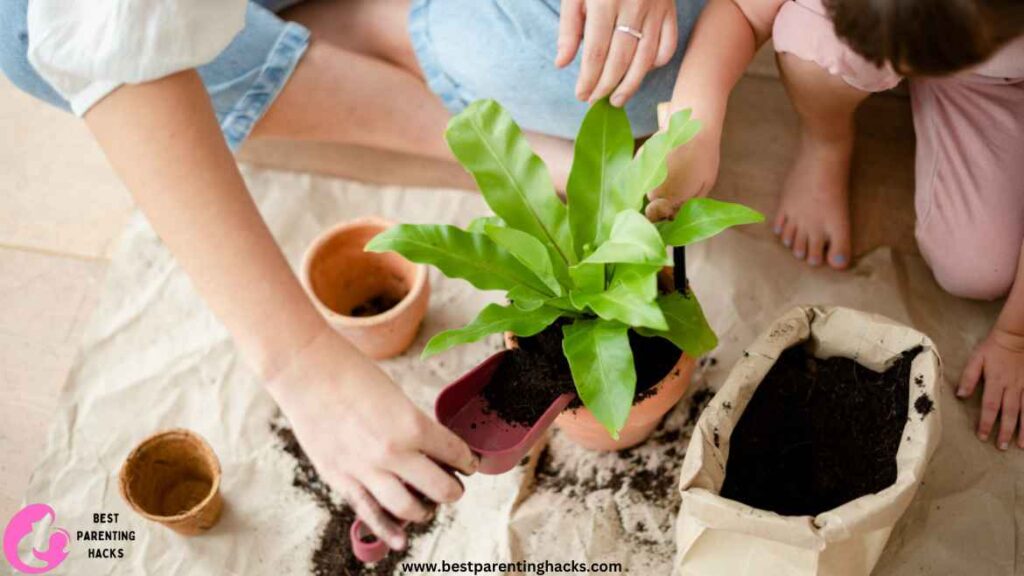
Long-Term Considerations and Monitoring
It’s crucial to keep an eye out for any delayed signs in your child following a dirt ingestion episode. Keep an eye out for adjustments in behavior in general, bowel motions, or hunger. Never hesitate to seek guidance and assurance from your physician if you have any worries.
Conclusion
It might be unsettling to witness your youngster consume potting soil, but this is a normal aspect of their inquisitive stage. You can protect them by acting right away and putting precautions in place. Recall that you’re doing a fantastic job raising your child, and these kinds of situations are just a part of growing up.
FAQs
1. Is kids’ exposure to potting soil toxic?
Potting soil is generally not hazardous, although it may contain substances that might be dangerous if consumed in high amounts. It is of utmost importance to vigilantly monitor the infant and, if necessary, promptly pursue medical help.
2. What happens if my infant consumes potting soil?
Take out any last bits of dirt from their mouth, give them some water, and keep an eye out for signs of discomfort. See a doctor if symptoms appear or if a significant amount is consumed.
3. Can youngsters who consume potting soil have health problems?
Although it happens seldom, consuming potting soil may cause gastrointestinal distress, choking risks, or, in situations when the soil includes toxic materials, more significant health problems.
4. How can I stop my kid from consuming potting soil once more?
Make sure to supervise your child while they’re playing in areas where there’s potting soil. Teaching children about the repercussions of their food choices is essential.
5. Does consuming potting soil have any lasting effects?
If consumed in tiny amounts, there are often no long-term impacts. However, it’s important to stay vigilant, about one’s well-being and consult a professional for precise advice.
6. How can I tell if my kid has consumed potting soil?
Observable dirt in or around the mouth, behavioral abnormalities, or physical symptoms like diarrhea or vomiting can all be indicators.
7. If my toddler consumes a little bit of potting soil, should I call a doctor?
In cases when the quantity is little and no symptoms appear right away, careful observation at home could be adequate. It’s always safer to see a healthcare provider, though, if you’re unsure.

